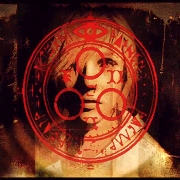|
el3m posted:I liked People's tragedy on audible as a casual listener, but I don't know anything about the author. Aparrently he had some Amazon review controversy that was mentioned in Wikipedia, but is he discredited somehow? The book has won many awards, which is why I picked it up. The anonymous Amazon reviews were bad enough, but there's a lot more to Figes being an unreliable weirdo than just that. This article is the best summary of his issues that I know of: https://www.thenation.com/article/archive/orlando-figes-and-stalins-victims/
|
|
|
|

|
| # ? Apr 19, 2024 15:06 |
|
Perennial thread depression inducer King Leopold's Ghost is now $2.99. I have had this book for years and never been able to bring myself to read it.
|
|
|
|
I read Why Nations Fail by Acemoglu & Robinson a few years ago, and I remember hating it. Basically the idea is that more fragile countries have "extractive institutions" that enrich powerful elites, while more robust countries have "inclusive institutions". They don't really develop the theory in any more depth, making this book about as insightful as a high school history paper. The rest of the book is chiding countries with extractive institutions and praising countries with inclusive institutions. I figured there would be at least some discussion of how to tell how extractive or inclusive a given country's institutions are, but the authors don't bother. There's also almost no discussion of how to strengthen nations by making their institutions more inclusive. Anyone else read this one? Was I being too harsh?
|
|
|
|
That's an interesting theory. But how do they determine why a country gets an extractive versus inclusive institution?
|
|
|
|
Minenfeld! posted:That's an interesting theory. But how do they determine why a country gets an extractive versus inclusive institution? An interesting first cut is if your country was colonized by anyone other than the English, or by the English.
|
|
|
|
Minenfeld! posted:That's an interesting theory. But how do they determine why a country gets an extractive versus inclusive institution? To steelman the argument I guess we could say: Early modern France suffered a terrible revolution, but nothing nearly as catastrophic happened in Britain. One reason is that during the prior centuries the British nobility systematically limited their own arbitrary power (as with the Bill of Rights) and expanded participation in government decision making to a large number of Britons -- perhaps not that many could formally participate by 1789, but the foundations for representative government were certainly laid in the 1700s. On the other hand, the House of Bourbon took a merciless view toward anyone in the way of royal power and spent those centuries consolidating power and persecuting dissidents. By the late 1700s, both empires were badly in debt and their workers immiserated, but Britain weathered the storm better than anyone because their inclusive institutions strengthened social integration, while the vestigial Estates-General failed to mollify widespread anger with the regime. Sounds like a fairy tale, unfortunately. Did the king and his ministers decide it was time to cede a bunch of power to the people, so they unilaterally extended civil rights to all Englishmen? I mean, there's a place for people like Lee Kuan Yew who have a long-term vision of how to shape their country and successfully make it so, but most visionaries who try to fundamentally alter the development of their country in some deliberate, planned way aren't that successful. I'm sure the Bill of Rights and other moves toward "inclusive institutions" are partly the result of thoughtful planning by leaders, but it sure seems like they had a lot more to do with related political events such as the Glorious Revolution. I guess I really don't like this because it's a just-so story that tells us very little about how societies develop and change, or what we can do about it. Some of the reviews I saw criticized it for getting the causality backwards, and that seems like a serious problem with this methodology.
|
|
|
|
Vivian Darkbloom posted:To steelman the argument I guess we could say: Early modern France suffered a terrible revolution, but nothing nearly as catastrophic happened in Britain. One reason is that during the prior centuries the British nobility systematically limited their own arbitrary power (as with the Bill of Rights) and expanded participation in government decision making to a large number of Britons -- perhaps not that many could formally participate by 1789, but the foundations for representative government were certainly laid in the 1700s. On the other hand, the House of Bourbon took a merciless view toward anyone in the way of royal power and spent those centuries consolidating power and persecuting dissidents. By the late 1700s, both empires were badly in debt and their workers immiserated, but Britain weathered the storm better than anyone because their inclusive institutions strengthened social integration, while the vestigial Estates-General failed to mollify widespread anger with the regime. Far more people died in the English Civil War and related conflicts than in the French Revolution (not counting the Revolutionary Wars here, obviously, but comparing internal struggles for power), so like you I'm unsure it's really accurate to say that the British nobility just systematically limited their own power and expanded participation all on their own. The British rose up and executed their own king and abolished the monarchy, and only acquiesced to a new king when he promised to limit his own powers and devolve some of them to Parliament, a change that was confirmed by the Glorious Revolution and Bill of Rights--but although those later events were pretty bloodless compared to 1789, they came after decades of chaos and violence over whether the monarchy or Parliament would be supreme.
|
|
|
|
Does anyone have any recommendations about the Exposition Universelle of 1867? It's such an interesting cross section that I would love to see an in-depth look or exploration of what went on there.
|
|
|
|
Since I'm already not sleeping and utterly terrified for America's future, are there any good books that explore popular support of fascism in America in the 1930s? I'm hoping I can take some solace from the process of ultimately choosing the right side in WWII (while letting IBM help with the holocaust and Coca Cola sell drinks to Nazis). Maybe I should just re-read The Plot Against America.
|
|
|
|
Itís not directly about it, but Hitler in Los Angeles was a good read about how a ring of basically amateur undercover agents, many of them Jewish, managed to keep tabs on and foil a lot of Nazi activity on the West Coast in the 1930s. As part of that it gets into the history of the pro-Nazi/fascist movement in America at the time and how it worked to generate popular support.
|
|
|
|
The American support for the Nazi Party pre WWII has been vastly overstated due to various reasons over the past 70 years. If you want a more relevant and accurate portrayal of how much worse the US was in the past than it is now just read about the KKK in the 20s and how they could hold ticker tape sized parades in Washington DC.
|
|
|
|
Shimrra Jamaane posted:just read about the KKK in the 20s and how they could hold ticker tape sized parades in Washington DC. Porfiriato posted:Itís not directly about it, but Hitler in Los Angeles was a good read about how a ring of basically amateur undercover agents, many of them Jewish, managed to keep tabs on and foil a lot of Nazi activity on the West Coast in the 1930s. As part of that it gets into the history of the pro-Nazi/fascist movement in America at the time and how it worked to generate popular support.
|
|
|
|
It'd be easier to answer that question if you provide a definition for "support of fascist governments" because the two examples you gave above are usually the overstatements.
|
|
|
|
Good books on the history of prostitution/sex work in the US or France? Ideally focusing on the 19th century onward, if that helps narrow it down. It's a subject I'd like to learn more about, but I don't know where to start.
|
|
|
|
Shimrra Jamaane posted:The American support for the Nazi Party pre WWII has been vastly overstated due to various reasons over the past 70 years. If you want a more relevant and accurate portrayal of how much worse the US was in the past than it is now just read about the KKK in the 20s and how they could hold ticker tape sized parades in Washington DC. What is perhaps understated is how much Hitler looked to the United States as a German future, not just in the obvious living space = manifest destiny way, but also in his envy of American consumer culture. Brendan Simms' presents a revisionist argument that suggests the Nazis looked as much to Western capitalism -- both with condemnation and envy -- as they feared Russian Bolshevism, in his 2019 Hitler biography. I'd recommend it if you haven't read it. It has a very good section on Nazi car culture that I really found interesting.
|
|
|
|
Vasukhani posted:What is perhaps understated is how much Hitler looked to the United States as a German future, not just in the obvious living space = manifest destiny way, but also in his envy of American consumer culture. he also really really liked Native american and cowboy stuff. i believe he viewed various american tribes as "offshoots" of Aryans or some poo poo.
|
|
|
|
Vasukhani posted:What is perhaps understated is how much Hitler looked to the United States as a German future, not just in the obvious living space = manifest destiny way, but also in his envy of American consumer culture. Yeah unfortunately Brandon Simms is very problematic and more storied Nazi historians are not kind with his bio of Hitler for good reasons. https://www.theguardian.com/books/2019/sep/27/hitler-only-the-world-was-enough-and-hitler-a-life-review Money Quote: ďIn the end, Simms hasnít written a biography in any meaningful sense of the word, heís written a tract that instrumentalises the past for present-day political purposes. As such, his book can be safely ignored by serious students of the Nazi era.Ē Someone who gave the bio a glowing review is Victor Davis Hanson who most recently wrote a book about how Trump is one of historyís greatest Presidents. Shimrra Jamaane fucked around with this message at 02:23 on May 12, 2021 |
|
|
|
Karenina posted:Good books on the history of prostitution/sex work in the US or France? Ideally focusing on the 19th century onward, if that helps narrow it down. It's a subject I'd like to learn more about, but I don't know where to start. Sounds like you'd like "Policing Prostitution in Nineteenth-Century Paris" by Jill Harsin. Came out in the last few years so pretty recent scholarship. Edit: Vasukhani posted:What is perhaps understated is how much Hitler looked to the United States as a German future, not just in the obvious living space = manifest destiny way, but also in his envy of American consumer culture. James Whitman's "Hitlerís American Model: The United States and the Making of Nazi Race Law" also from a few years ago looks how much the US legal system influenced Nazi jurisprudence. Chairman Capone fucked around with this message at 02:22 on May 12, 2021 |
|
|
|
Shimrra Jamaane posted:Yeah unfortunately Brandon Simms is very problematic and more storied Nazi historians are not kind with his bio of Hitler for good reasons. Hitler is probably a reasonable source for 1 thing -- the thoughts of Hitler, which is the subject of the book. I don't buy his argument that Hitler was anti-capitalist, but his stuff on America as German future is fairly interesting. I was extremely skeptical of this book, and wouldn't have paid money for it (why is another Hitler bio needed?) I agree with what Evans has said, but he has focused on the "Hitler believed in social welfare === socialism!" part. Many much better historians have focused on nazi social welfare, Gotz Aly immediately comes to mind. But he does compile a fairly large description of Hitler's thinking about the United States, which I think is ultimately worth considering. wisconsingreg fucked around with this message at 02:42 on May 12, 2021 |
|
|
|
Oh there is absolutely truth to the claims that during Hitlers period of formulating his world views during the early to mid 20s he had a long term concern that unless Germany became a giant self sufficient state with the power of a continent behind it that they would eventually lose the inevitable racial struggle to the mongrel United States. But itís a obviously a massive debate among historians on how much we should take away from Hitlers writings in the 20s to explain his actions in the late 30s that led to war. And Iím on the side that by the end of the 30s the United States was not a significant factor in his decision making.
|
|
|
|
Dapper_Swindler posted:he also really really liked Native american and cowboy stuff. i believe he viewed various american tribes as "offshoots" of Aryans or some poo poo. Native American/Wild West stuff was popular in Germany/Austria when Hitler was growing up. There was a popular German author named Karl May, who wrote a bunch of stuff set in the American West about a German who goes to America and gets the name "Old Shatterhand". He befriends and becomes blood brothers with an Apache chief named Winnetaou, and together, they fight bandits, enemy Indians, and people who are trying to cheat or steal from the Apache. (He wrote another series, this one set in the Middle East, with basically the same synopsis....just substitute "Arab" for "Apache". He wrote something like 24 books in the series and they were extremely popular. They were allowed in the Nazi period with the official reason being that the Native Americans were a warning sign about what can happen to a people if they let themselves be culturally contaminated, but the real reason being that Hitler liked them and they were so popular with the public that banning them would just hurt the Nazi's popularity. Interestingly enough, had he lived long enough to see them, May probably wouldn't have liked the Nazis much. He was a devout Christian (who, near the end of his life, wrote a bunch of religious fiction), pro-Jewish, and a pacifist.
|
|
|
|
You can chart a pretty consistent throughline of the image of the mythical American cowboy/outlaw in proto-fascist movements as well, whether that's the KKK or the Marquis de Morés.
|
|
|
|
On that note, I've recently started reading Jesus and John Wayne, about the rise of the explicitly right-wing political identity in American evangelicalism.
|
|
|
|
Being a cowboy was a hard and lovely job, so surprise, a disproportionately high number of them were black. Not that they havenít been erased in pretty much all media appearing afterwards.
|
|
|
|
Take the plunge! Okay! posted:Being a cowboy was a hard and lovely job, so surprise, a disproportionately high number of them were black. Not that they havenít been erased in pretty much all media appearing afterwards. There's also a large history of cowboy strikes and other organized attempts to exert pressure on the ranch owners that's been largely forgotten in popular consciousness. 15-20 years ago there was a big wave of historical reality shows that were inspired by BBC productions like 1900s House and Coal House, and one of them was a PBS show called Texas Ranch House that was essentially people trying to run a mid-1800s cowboy ranch for three months solely using period technology. That was one of the most interesting "___ House" shows because the labor (and racial) issues actually did emerge in the show, both between the ranchers and the owner family, as well as racially among the cowboys and cooks, and then between the women and the men of the owner family. No idea where it's available to watch now, but I'd recommend it if you can find it. Randy Quaid is even the narrator!
|
|
|
|
Anyone know a good book about pre-colonial Burma? I'm interested after reading a pretty incredible mic drop from a Burmese general after defeating a Qing invasion, and I know nothing.
|
|
|
|
i was listening to a good course on the birth of marxism and the early days of communism ending with lenin. whats a good book on that period?
|
|
|
|
Dapper_Swindler posted:i was listening to a good course on the birth of marxism and the early days of communism ending with lenin. whats a good book on that period? I don't know if it's a good book, because I just picked it up, but I just got David Priestland's "The Red Flag: A History of Communism".
|
|
|
|
Dapper_Swindler posted:i was listening to a good course on the birth of marxism and the early days of communism ending with lenin. whats a good book on that period? lenin is a good place to start
|
|
|
|
Epicurius posted:I don't know if it's a good book, because I just picked it up, but I just got David Priestland's "The Red Flag: A History of Communism". Got through the introduction talking about being an exchange student in the USSR in the 1980s and lost interest. Maybe it'll pick up at some point.
|
|
|
|
Don't know how well it holds up since it's from 1940, but To The Finland Station is a well written and interesting overview of early socialists and Marx with a biographical bent.
|
|
|
|
Vasukhani posted:lenin is a good place to start Thatís kind of in the same ballpark as recommending Livy as the first stop for someone asking for a good overview of Roman History.
|
|
|
|
Epicurius posted:I don't know if it's a good book, because I just picked it up, but I just got David Priestland's "The Red Flag: A History of Communism". Shimrra Jamaane posted:Thatís kind of in the same ballpark as recommending Livy as the first stop for someone asking for a good overview of Roman History. i think they mean the book. yeah i have it somewhere. Vasukhani posted:lenin is a good place to start ty
|
|
|
|
No, go talk to Lenin. He lives up the street and sits on his porch all day. He loves talking about socialism. Friendly guy.
|
|
|
|
Also I cannot vouch for his accuracy as I don't really know enough about it, but Revolutions podcast is probably half way through the Russian Revolution right now, and there's loads of preamble material on Marxism and the revolutionaries of 1904 as well.
|
|
|
|
Just don't make my mistake of talking to Lennon instead. That goofball makes no kind of sense.
|
|
|
|
Chairman Capone posted:Sounds like you'd like "Policing Prostitution in Nineteenth-Century Paris" by Jill Harsin. Came out in the last few years so pretty recent scholarship. Sounds like a start.
|
|
|
|
PittTheElder posted:Also I cannot vouch for his accuracy as I don't really know enough about it, but Revolutions podcast is probably half way through the Russian Revolution right now, and there's loads of preamble material on Marxism and the revolutionaries of 1904 as well. revolutions is like a good version of hardcore history. Only issue I have is he is now basically synthesizing 5 books at once and might benefit from an editor.
|
|
|
|
PittTheElder posted:Also I cannot vouch for his accuracy as I don't really know enough about it, but Revolutions podcast is probably half way through the Russian Revolution right now, and there's loads of preamble material on Marxism and the revolutionaries of 1904 as well. I never listen to podcasts but out of curiosity I looked at his bibliography for the Russian Revolution and it's okay. It's a mix of: 1) primary sources, which is good, though his seem heavily focused on the writings of leading radicals (Bakunin, Lenin, Plekhanov, etc.) and less so on daily life in late imperial Russia, which as a social/cultural historian I find a little grating. There are a few good collections in here though (especially Steinberg's Voices of Revolution) for the bottom-up perspective, so hopefully he'll be making heavy use of those. 2) old or outdated secondary sources, like from the 50s or ones that have been generally displaced in the field by more recent scholarship. Just one example, he has two biographies of Petr Stolypin, one from 1976 and one from 1998, both of which are fine but have generally been displaced in the field by Abraham Ascher's 2002 biography, which doesn't make it into the bibliography. 3) general-audience books, some written by academics, which are fine for a pop-history podcast. I might have some quibbles here and there, but they're generally good. 4) a few specialized scholarly texts, which are well-chosen but not comprehensive. I guess I'm a little confused by some glaring omissions. These might get remedied over time, since it says the bibliography is getting updated continually. I assume he hasn't got to 1917 yet because the list doesn't include some books that are basically essential for a history of 1917 (two examples off the top of my head are Tsuyoshi Hasegawa's history of the February Revolution and Alexander Rabinowitch's histories of the July Days, the October Revolution, and the first year of Bolshevik power) - although he does include some other 1917-specific books like Trotsky's history of 1917 or John Reed's Ten Days that Shook the World about October, so I find it slightly strange that the bibliography already includes some 1917-specific books but excludes some of the most important histories of that year.
|
|
|
|

|
| # ? Apr 19, 2024 15:06 |
|
Vasukhani posted:revolutions is like a good version of hardcore history. Only issue I have is he is now basically synthesizing 5 books at once and might benefit from an editor. Revolutions is fantastic and I cannot emphasize enough how much better Mike Duncan is compared to Dan Carlin. But taking on the Russian Revolution in podcast forum is a gigantic undertaking and will probably take him like 100 episodes.
|
|
|













 \
\

















 Yes, it's like a lava lamp.
Yes, it's like a lava lamp.

